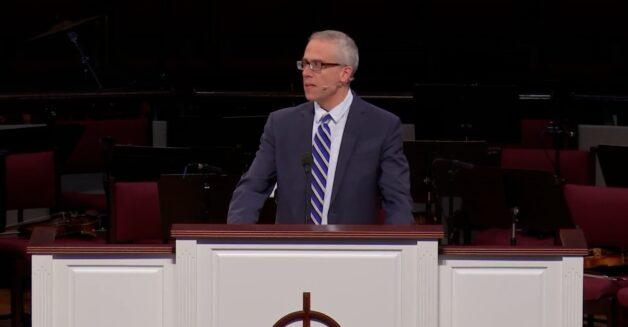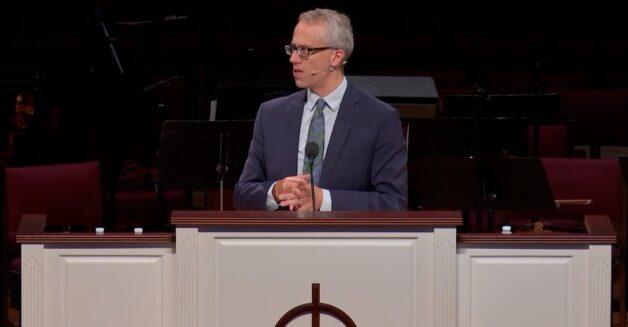When John Piper preached at our church two weeks ago, he talked about the very high view Muslims have of the sovereignty of God. They believe in a God who ordains whatsoever comes to pass. They believe in a God who knows the hairs on our heads. They believe in a God who can do as he pleases.
So is there any difference between a sovereign Allah and the sovereign God of the Bible? Piper argued that in Islam the sovereignty of God operates independently of his other attributes, such that Allah can be capricious and arbitrary in his exercise of divine power. This is, no doubt, how some Christians see the Reformed view of God and why they reject it so strenuously.
But when Calvin and other early Reformed thinkers exulted in God’s design and decrees, they typically did so with a different word besides “sovereignty.” They much preferred to talk about providence. Obviously, the two are related. There is nothing wrong about celebrating divine sovereignty, so long as we understand that God’s inscrutable power is not exercised on a whim, but always as an expression of love for his people. His sovereignty is pro-us, which is why the Reformers talked about providence more than raw sovereignty.
Typically, the doctrine of providence has been placed alongside the doctrine of creation, the former being an extension of the same power and purpose we see in the latter. Calvin’s most “extreme” statements about divine sovereignty are stated in his chapters on the doctrine of providence (Institutes, Book 1, Chapters 16-18). Calvin thrilled in divine providence, not because it was some cold esoteric principle, let alone an example of God’s cruel caprice, but because it reminded Calvin that in all of life’s surprises and suffering that God has a “special care toward us.” Because God is powerful and because he is for us as his children, we can be grateful when things go well, patient when things go poorly, and enjoy “an incredible freedom from worry about the future.”
The Heidelberg Catechism picks up this same language in Lord’s Day 10 when it explains what we understand by the providence of God and how this knowledge helps us: “We can be patient when things go against us, thankful when things go well, and for the future we can have good confidence in our faithful God and Father that nothing will separate us from his love. All creatures are so completely in his hand that without his will they can neither ore nor be moved.” Likewise, the Belgic Confession teaches that this doctrine of providence “gives us unspeakable comfort since it teaches us that nothing can happen to us by chance but only be the arrangement of our heavenly Father” (Article 13).
Most of the readers of this blog love “Big God” theology. We love to sing and savor the sovereignty. And rightly so. But let us always remember–and make explicit before our children and our churches–that this big God is our God. More than that, through Christ, he is our heavenly Father. And by the firm and gentle hand of providence, our Father works all things no only for his glory, but also for our good.



